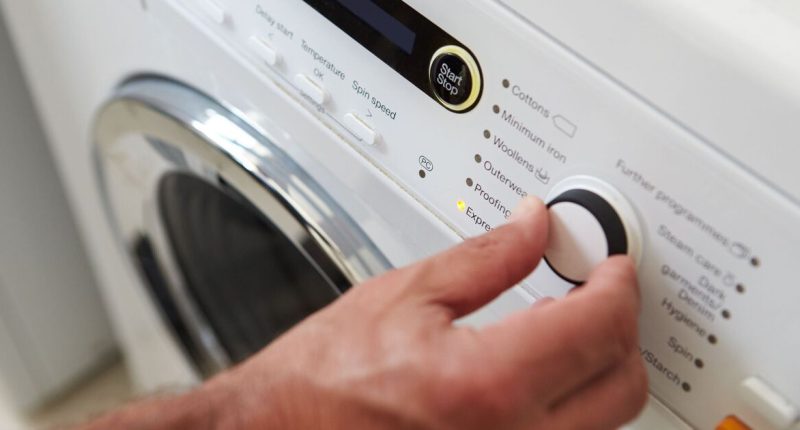Share this @internewscast.com
Households across the UK are being urged to boil wash their clothes and bedding in June due to an usuaul surge in norovirus cases this spring.
The UK Health Security Agency (UKHSA) has warned that norovirus – also known as the winter vomiting bug– is still spreading in the UK. The bug is linked to around 12,000 hospital admissions in the UK every year and while it is typically most prevalent in winter, it is still possible to catch it all year round. The stomach bug causes gastroenteritis resulting in sudden, watery diarrhoea and projectile vomiting, as well as a slight fever, painful stomach cramps, headaches, and aching limbs.
It is spread very easily through contaminated food, water, and surfaces, through direct contact with an infected person, and by eating food prepared by someone with the virus, so it is important to take precautions.
It is also possible to be infected with norovirus more than once as the bug is constantly changing, which prevents the body from building up any long-term resistance, so even if you’ve already had it this winter there is still a risk you could get it again.
In a post on X (formerly Twitter) urging people to be vigilant to minimise the risk of catching the bug and spreading it to others, the UKHSA said: “Vomiting or diarrhoea in spring? It could still be norovirus.
“Despite being known as the ‘winter vomiting bug’, norovirus can spread all year round, and we’re seeing higher than usual levels this spring. Find out what to do to stop the spread.”
One key piece of advice from the UKHSA is to wash all clothing and bedding on a boil or hot wash, at a temperature of at least 60C, as this will kill any virus particles and stop the bug being passed on.
Electronics brand Beko says you should wash your bed sheets at least once a week on a boil wash to prevent bugs from spreading. It states: “If you have sensitive skin, but your appliance does not feature a dedicated Anti-Allergy programme, your bedding should be washed on a hot/boil wash at 60 degrees to help prevent infections from persisting or spreading.”
Households are also urged not to share towels or flannels, and to disinfect surfaces or objects with a bleach-based household cleaner. Regular hand washing with soap and water is also recommended as alcohol-based hand gels don’t kill norovirus.
The UKHSA says: “Individuals are most infectious when symptomatic, but it is possible to pass on norovirus or shed the virus, thereby contaminating surfaces, objects or even food, both before developing symptoms and after symptoms have stopped.
“Wash any contaminated clothing or bedding using detergent and at 60C, and if possible, wear disposable gloves to handle contaminated items.
“To disinfect contaminated surfaces, use bleach-based cleaning products where possible as norovirus can survive on surfaces for days or weeks otherwise.
“Norovirus immunity is short lived and there is no cross-strain immunity, therefore it is possible to have multiple norovirus infections in a short period of time if you’re exposed to different strains.”
















